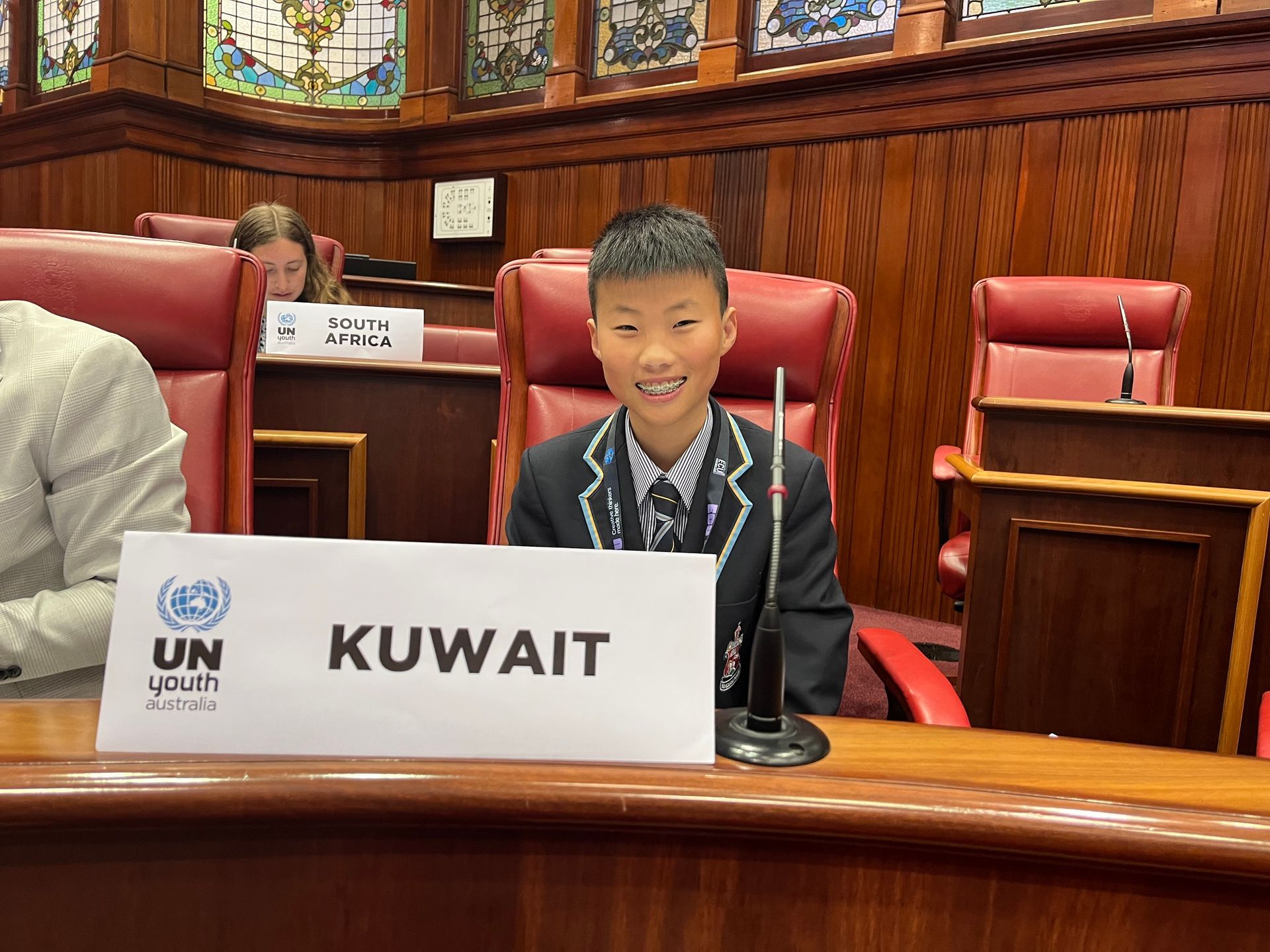“Politics isn’t just the speeches or the televised debates, it’s a living, breathing force that shapes our everyday lives,” highlighted Victor Ni, a Senior at Canberra Grammar School in Canberra, Australia. For Victor, politics is personal. Through his work founding International Youth MUN (IYMUN), a free, online initiative designed to reach youth—especially those from underrepresented communities—he has connected students from across 20+ countries. By partnering with five NGOs and hosting regular MUN 101 workshops, he has seen firsthand how many young people are locked out of traditional opportunities—and learned that true leadership is about building others up.
As the captain of his school’s debate program, Victor sought to build more than just a winning record. Along with his peers, they launched a mentoring program that now supports over 70 students. Each week, mentors have worked directly with younger students to refine their public speaking techniques and, more importantly, build the confidence to stand at a podium and have their ideas heard. For Victor, he found “helping students find their voice” really powerful and inspiring. “It’s seeing students who once doubted themselves walk into a room believing their voice matters,” he shared.
Unfortunately, as Victor notes, while so many young people want to be part of decision-making, they often don’t get the opportunity, or they’re made to feel like they’re too “small” to make a real difference. Consequently, his passion for amplifying youth voices also led him to serve on the Vinnies Social Justice Council and as a Youth Ambassador with UrVoice Australia, an non-profit stigmatizing and promoting mental health in Australian schools.
In these roles, he has worked with young leaders across the state to improve access to mental health support for youth, helping to coordinate peer education initiatives from the perspective of youth. His advocacy culminated in delivering a 5-minute adjournment speech in local Parliament, where he called for greater investment in youth education and conservation. “Systemic change honestly starts with giving young people platforms to speak,” he shared, reflecting on how personal stories can shape public policy. Whether standing at a podium or organizing a campaign, Victor believes leadership is about listening. In the future, Victor hopes to study politics, international relations or and law so he can keep pushing for systems that include, rather than ignore, the voices of young people. Through this, he hopes to use those tools, not just to challenge structural inequalities from the “outside,” but to sit at the tables where the real decisions are made and open the door wider for those coming after him.
Is stronger leadership necessarily better leadership? He notes that vulnerability is one of the leadership characteristics necessary to ensure this change occurs. Vulnerability is not often the first characteristic that comes to mind when the idea of political leadership is posed; yet, Victor argues it is the most important. Vulnerability, as Victor argues, “should not be a weakness but a strength.” In his eyes, a vulnerable politician is a politician who listens and can acknowledge that the apathetic or oppositional voices are just as important as the active and supportive voices. Victor hopes to see his generation given a legitimate seat at the table in the future.
Importantly, he feels it is especially important to amplify youth voices, because “too often, education systems and policy frameworks aren’t naturally designed for youth.” Without the government actively listening to what young people need, policy cannot truly make an impact; “we can’t really create solutions for youth without first hearing their voices.” Leadership is thus not about a control of power but rather “steering” the group towards collective success. However, like many his
age, Victor believes this is not the case currently. He hopes to help change this by emulating this leadership in his own life and believes that the incorporation of youth into politics is a strong way to reverse such a pattern.
Victor’s belief in service-led leadership has shaped much of his journey, driving him to find ways to bridge politics and community action. His work advocating for greater youth inclusion in decision-making has been recognized globally: he was named a Crimson 18u18 finalist, selected as a HunDRED Global Youth Ambassador and awarded the Duke of Ed Gold Award for service. For Victor, these experiences have reinforced a simple idea: real leadership is about listening first, and making space for others to step forward too.
Victor advises his peers to “not wait until you feel qualified to care, contribute, or lead, because politics isn’t just reserved for the experts.” Oftentimes, politics is viewed as “distant,” especially for youth, but Victor highlights that “the most important political changes often begin with someone like you or me asking a simple question.” In the end, becoming involved with politics does not mean running for office. Whether you are advocating for a local issue or having conversations with your peers, you are participating in politics, and that matters. If you stay curious and informed, you have the ability and power to make meaningful change in the world.

Victor Ni, 1st Place — Winter 2024 ChallengeUS Future Leaders Competition, Speech
[Photo/Courtesy of Ni]

